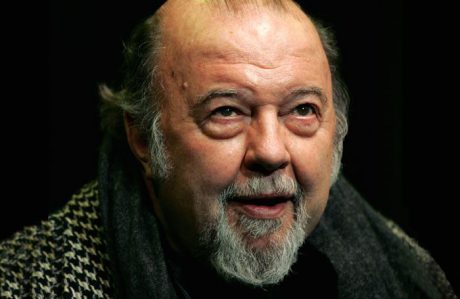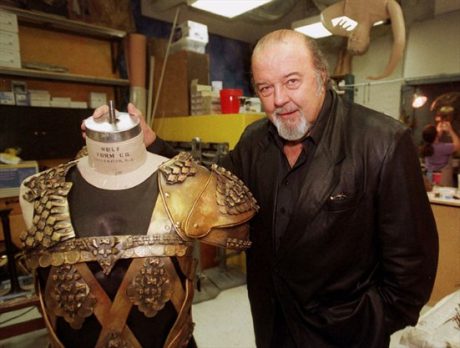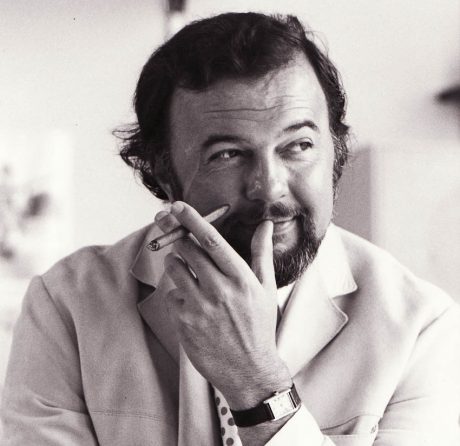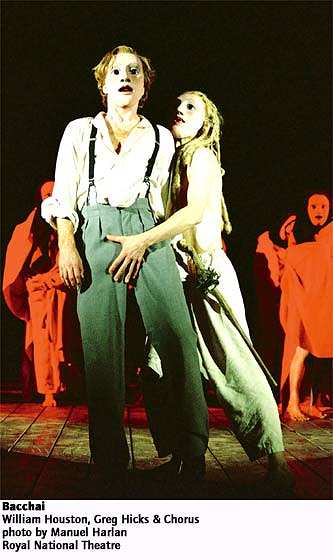Divadelní noviny > Burza Zahraničí
Zemřel Sir Peter Hall

FOTO TRISTRAM KENTON
Sir Peter Hall
22. 11. 1930 West Suffolk, Velká Británie – 11. 9. 2017 Londýn, Velká Británie
Významný britský divadelní režisér, bývalý ředitel a umělecký šéf Královského Národního divadla v Londýně a zakladatel Královské shakespearovské společnosti.
Královskou shakespearovskou společnost založil v roce 1960, kdy mu bylo dvacet devět let. V čele souboru stál do roku 1968. Dal tak vzniknout uměleckému souboru, jenž byl světovou špičkou nejen v shakespearovské produkci, ale obdobně slavil úspěchy při uvádění nových her všeho druhu. Byl to nejen senzační a pronikavý režisér, ale také vynikající umělecký šéf, uvedl sir Trevor Nunn, který britské Národní divadlo vedl po něm.

V září 2000 během příprav deseti a půlhodinové inscenace Tantalus v Center for the Performing Arts v americkém Denveru. FOTO DAVID ZALUBOWSKI
Peter Hall byl mezinárodně uznávaným divadelním režisérem a uměleckým šéfem. Jeho dopad na umělecký život Británie ve 20. století nemá obdoby, uvedlo londýnské Národní divadlo v prohlášení, v němž informovalo o umělcově úmrtí. V čele londýnského The Royal National Theatre stál v letech 1973 až 1988. Národní divadlo během svého ředitelování přesunul z budovy Old Vic (stejnojmennou scénu na témže místě vede od roku 2003 Kevin Spacey) u nádraží Waterloo do betonové brutalistické budovy na jižním nábřeží Temže. Nešlo ovšem o pouhé stěhování: z divadla se třemi scénami za dobu svého působení vybudoval světově respektovanou a ambiciózní instituci, napsala BBC.
Během déle než padesátileté kariéry se Hall zasloužil o anglické premiéry Čekání na Godota Samuela Becketta či Návratu domů Harolda Pintera. Byl také významným operním režisérem. Vedle britské Královské opery režíroval i v Metropolitní opeře v New Yorku či na wagnerovském festivalu v Bayreuthu.
Zemřel v londýnské nemocnici University College Hospital v kruhu rodiny.
///
Peter Hall is the model for today’s theatre leaders
Peter Hall’s accomplishments as a director, across a career spanning more than 60 years, are legendary. We owe both the modern Royal Shakespeare Company and National Theatre to him.

V roce 1973. FOTO archiv
He founded the former at the age of 29, turning Stratford-upon-Avon’s Shakespeare Memorial Theatre into a permanent company devoted to classical theatre, and was the second artistic director of the latter from 1973 to 1988, responsible for moving the company from the Old Vic to the South Bank in its difficult, mid-1970s transition. He was also director of Glyndebourne Opera from 1984 to 1990.
He directed the first production in English of Beckett’s Waiting for Godot at the Arts Theatre, aged just 24, as well as the first London production of Tennessee Williams’s Cat on a Hot Tin Roof, the first productions of Pinter’s The Homecoming (1965), No Man’s Land (1975) and Betrayal (1978) and Peter Shaffer’s Amadeus (1979).
Hall also directed a host of great classical productions, particularly of his beloved Shakespeare of which he was a noted authority and teacher in verse-speaking.
His famous 1963 RSC production The Wars of the Roses, adapted from the History plays with John Barton, was dubbed by the Times’ critic Irving Wardle as “the greatest Shakespearean event in living memory, which also laid down the doctrine of Shakespearean relevance to the modern world”.
He became a man of the commercial theatre at the helm of the Peter Hall Company from 1988. With West End partners that included Duncan Weldon, Jeffrey Archer, Bill Kenwright and Kim Poster, Hall became a leading player in the West End and on Broadway with star-driven productions that included Dustin Hoffman in The Merchant of Venice, Vanessa Redgrave in Orpheus Descending, Martin Shaw in An Ideal Husband and David Suchet in a revival of Amadeus, all of which played on both sides of the Atlantic. This mantle and model has in turn been taken by such directors as Michael Grandage (in his post-Donmar career) and Dominic Dromgoole, who is about to launch his own West End company.
Beyond this astonishing theatrical legacy, Hall virtually single-handedly took on the role of public spokesperson for the theatre on the national stage, at a time when Thatcherite politics of the 1980s were undermining it at every turn. In his diaries, he wrote: I saw the Thatcher government dismantle the performing arts, spoil our education system and partially destroy our great tradition of public service broadcasting. For her part, Margaret Thatcher once famously asked: Why do we have to keep giving money to that awful man Peter Hall?
His political rigour and willingness to speak truth to power, whatever the personal cost is an example that others like Nicholas Hytner subsequently followed. Arts leaders, he knew well, need to lead, not cower. And Hall was always one to speak his mind.

Z inscenace Bacchai v RNT (2002). FOTO MANUEL HARLAN
He did so famously, in 2012, when he inadvertently heckled Downton Abbey star Laura Carmichael on the first night of a West End production of Uncle Vanya where he was an audience member. Having fallen asleep, when he woke up in the closing moments of the play, he was, according to his own account, “briefly disorientated”. The director in him asserted itself as he was heard to cry out: Stop, stop, stop! It doesn’t work and you don’t work. It is not good enough.
It was an unfortunate early sign of the dementia that he had been diagnosed with in 2011, but another leading director messaged me that night to say he’d been tempted to give the same notes on the production.
If the true commercial success of directing a long-running hit musical eluded him – he made several misfiring attempts including Jean Seberg at the National and Born Again at Chichester – his artistic legacy won’t be measured in money.
As Rufus Norris, current director of the National, has commented: We all stand on the shoulders of giants and Peter Hall’s shoulders supported the entirety of British theatre as we know it. All of us, including those in the new generation of theatremakers not immediately touched by his influence, are in his debt. His legendary tenacity and vision created an extraordinary and lasting legacy for us all.
Richard Eyre, who succeeded Hall at the National, brilliantly summed him up thus: Peter created the template of the modern director: part-magus, part-impresario, part-politician, part-celebrity. He was – and is – the godfather (in both senses) of British theatre and, like countless directors, writers and actors of several generations, I have much to be grateful to him for.
Mark Shenton
associate editor of The Stage, as well as joint lead critic
/Převzato z časopisu The Stage/
/Pro i-DN z více zdrojů připravil hul/
Komentáře k článku: Zemřel Sir Peter Hall
Přidat komentář
(Nezapomeňte vyplnit položky označené hvězdičkou.)




